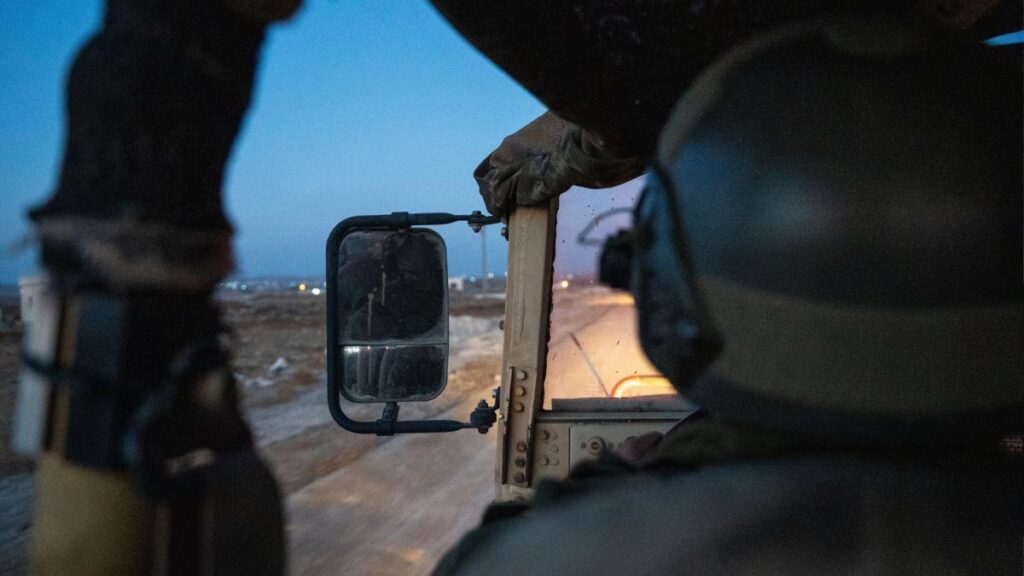Israeli forces advanced 38 kilometers into Syrian territory after the fall of Bashar al Assad’s government, seizing weapons depots, arms, and military bases, according to a report published by the Israeli newspaper Yedioth Ahronoth on Saturday, September 13.
The paper said the operation, codenamed “White Green,” was carried out with the participation of hundreds of reservists from the 210th Division, during which they captured two Syrian military bases without resistance.
For Israeli army veterans, the operation was reminiscent of the last major incursion into Syrian territory some 52 years ago, the newspaper noted.
The advance took place in the early hours of December 8, 2024, immediately after Assad’s collapse, when Israel’s Northern Command detected through surveillance and intelligence Syrians storming and looting suddenly abandoned Syrian army bases, including those in the Mount Hermon area.
Civilians took large quantities of weapons, rifles, and anti tank missiles, prompting the Israeli military to advance quickly. On the day after the regime’s fall, Israeli forces crossed the border into these areas.
The disclosure comes amid repeated Israeli incursions into Syrian territory, alongside negotiations between Damascus and Tel Aviv in which Syria seeks a return to the 1974 disengagement agreement.
According to Yedioth Ahronoth, the Israeli army seized about 3.5 tons of weapons and ammunition out of seven tons collected by the Mountain Brigade from Syrian territory. These included anti armor missiles, mortar shells, short range rockets, as well as old tanks and military trucks.
Israel also took control of a strip of Syrian land about 10 kilometers wide along the Golan Heights, stretching to the border triangle area at Hamat Ghadeer (in the Syrian Golan).
The army established eight military positions of varying sizes along this strip, completing the operation in 14 hours, the paper said.
For the first time since the 1973 war, Israeli artillery units entered Syrian territory to secure advancing forces.
Military sources told the paper that the new positions give Israel “a strategic advantage” in monitoring the Damascus Beirut highway and in exposing weapon smuggling routes to Hezbollah in Lebanon’s Beqaa Valley. They added that control of Mount Hermon has become a top priority, as it allows Israel to monitor both sides of the Golan Heights.
The report also claimed that Israeli soldiers “communicated with residents of some Druze villages in Rural Damascus,” who provided information on Syrian regime weapons caches and short range rockets.
Since Assad’s fall, Israel has maintained control of Mount Hermon and has repeatedly carried out airstrikes that have “killed civilians and destroyed Syrian military sites and equipment,” according to Yedioth Ahronoth.
Incursions and arrests
Israel has said it seeks a demilitarized zone in southern Syria to prevent future attacks similar to those of October 7, 2023. The statement was made by Israeli Foreign Minister Gideon Sa’ar in an interview with The Jerusalem Post on December 28, 2024.
From the first hours of Assad’s collapse, many regime military sites particularly air defense systems were struck heavily, leaving most of them out of service.
In recent months, Syrian and Israeli officials have held security talks, some direct and others mediated by the United States and the United Arab Emirates.
Israel also continues to carry out ground incursions and arrests in southern Syria. The most recent took place on September 11, when Israeli forces arrested a father and his son in the village of Abidin (western Daraa countryside, southern Syria).

